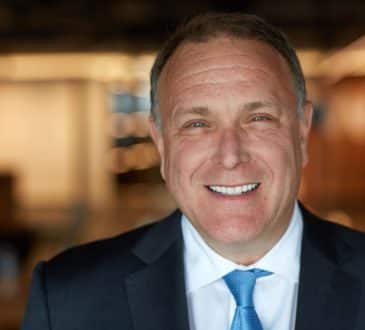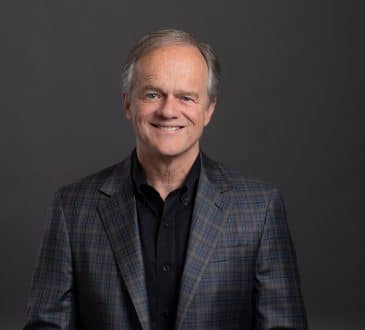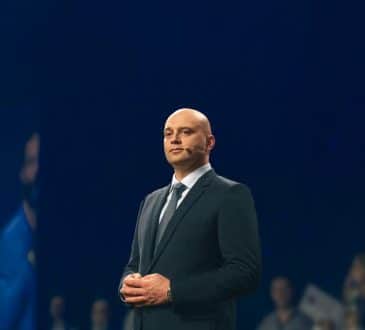Why Not Us? Quashing Self-Limiting Beliefs

It happened nearly 20 years ago, yet I remember it like yesterday. I watched the Boston Red Sox lose 19-8 to the New York Yankees, as the Yankees took a commanding 3-0 lead in the best-of-seven-game American League Championship Series (ALCS). The Red Sox had not won the World Series since 1918, and given the beating the Sox took in Game 3 and that no team in the history of Major League Baseball (MLB) had ever come back from 3 down to win a series, it looked like the team would have to wait another year.
Of course, think about it. The Sox had been through Spring Training, a 162-game season, and playoff games on top of that. Waiting until next year and starting the whole process again with the hope that the team would earn the right to play in the ALCS again is not the most attractive proposition. So, rather than lie down and lose the series, the Red Sox ignored their recent poor play (and the history books) and committed to each other to play the rest of the series one game at a time. No one has ever accomplished this before? Then, “Why not us?”
By now, you know the story. The Red Sox went on to win Game 4, 6-4 (12 innings); Game 5, 5-4 (14 innings); Game 6, 4-2; and Game 7, 10-3. Then, after coming back to win the series, a feat that no MLB team has accomplished since then, the Red Sox defeated the St. Louis Cardinals in the World Series, four games to none.
Character and Grit
Winning in sports and business is tough. Not everything goes our way. External forces and internal circumstances can put us behind the 8-ball. How we respond to those situations reveals our character and challenges our resolve. Ask yourself if your team is determined to repeat history or believes in themselves enough to write their own story.
I worked with an executive leadership team of a 100-year-old engineering firm once who, quite frankly, had lost their confidence. They were deeply concerned about the speed of change and the technological advances impacting their industry. They questioned whether they had what it took to keep up. It was their version of being down 3-0. Realizing what was happening, I reviewed a detailed account of the company’s history. As you might imagine, this firm repeatedly pivoted, survived, and thrived through world wars, natural disasters, recessions, and depression, among other things, and they were still standing.
I used the facts of their story to create a narrative that spoke to who they are, not just what they did in the past. I had them read it together to show them that there may be no group of people anywhere who had it more in their DNA to meet whatever challenge the world would throw their way than the people in that room. With a new bounce in their step, the team responded as they always had.
Sometimes You Just Have to Believe
Great teams in any vocation believe in their preparation, think they can do anything, and believe in each other. Then, they play it through with 100% effort to the end. Last night, that approach served the Boston Celtics well, as they defeated the Miami Heat on a shot with one-tenth of a second left on the clock to send Game 7 of the NBA Eastern Conference Finals back to Boston. Remember that just one week ago, Miami took a 3-0 series lead after demolishing the Celtics 128-102. Sound familiar?
It also is true that no team in the history of the NBA (150 playoff series matchups) has ever come back from a 3-0 deficit to win a series. Whiles others have forced a Game 7 (Knicks, 1951; Nuggets, 1994; Trailblazers, 2003), they lost their respective series. The Celtics play the Heat in Boston on Monday night. The Celtics will either repeat history or write their own chapter for the record books. Either way, the game will showcase character, grit, and teammates believing in one another, as one team will earn the right to play in this year’s NBA Finals.
Summary
Examples of individuals and teams overcoming self-limiting beliefs abound. In my second book, What Anyone Can Do: How Surrounding Yourself with the Right People Drives Change, Opportunity, and Personal Growth, Jim Kouzes told me the story of Don Bennett. Don was the first amputee to climb Mt. Rainier (14,280 ft.) with one leg and two crutches. He literally took it one hop at a time. The next time you or your team believes it can’t do something, remember Don Bennett, the Boston Red Sox, that 100-year-old engineering firm, and just maybe, the Boston Celtics.
Written by Leo Bottary.
Have you read?
The World’s Top 10 Highest-Paid Wealth Management Executives.
CEO compensation: Highest paid chief executive officers in the United States.
Highly-Paid Entertainment Chief Executives (Averaged $31.66 Million).
Highest-paid health insurance CEOs.
Most Powerful Companies in Australia, 2023.








